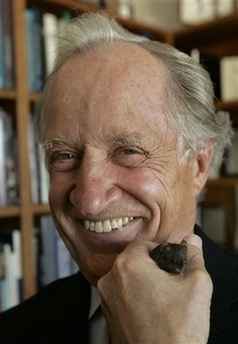Nobelist's youth -- drama with questions
Updated: 2007-11-07 09:47
RENON, Italy -- The tale of how Mario Capecchi, this year's Nobel medicine laureate, survived heartbreak and poverty in wartime Italy to go on to academic glory in America inspired the world in a way that resonated beyond his scientific triumphs.
|
|
The story Capecchi has told repeatedly over the years in speeches and interviews begins when he is 3 and the Gestapo, Adolf Hitler's secret police, snatch his mother before his very eyes and dispatch her to Dachau concentration camp. The peasant family that takes him in abandons him and he spends four years wandering about northern Italy -- a street urchin, alone and begging for food.
At war's end -- on the boy's ninth birthday -- mother and son are reunited in the hospital ward where he is being treated for malnutrition and typhoid. They set sail for America where he flourishes, embarks on a brilliant research career -- and goes on to win the Nobel Prize for medicine.
But The Associated Press, which set out to chronicle his extraordinary story in greater detail, has uncovered several inconsistencies and unanswered questions, chief among them whether his mother was in Dachau, and whether he really was for a long time a homeless street child.
Now, at age 70, the scientist is revisiting a past that appears to differ in significant ways from what he says he grew up believing.
Some of the contradictions that have since emerged might be attributed to the tricks played on a child's memory, or to secondhand information that eventually gelled in the mind as fact.
There is also no question that World War II obliterated what should have been a tranquil childhood and separated Capecchi from his mother, father and baby half-sister -- a sibling of whom he learned only due to publicity following his award.
And nothing appears in these inconsistencies to detract from the accomplishments of this University of Utah scientist who won the Nobel Prize, along with two Britons, for work that led to a powerful and widely used technique to manipulate genes in mice, and which advanced the understanding of a range of killer diseases.
In a statement Tuesday, university President Michael K. Young noted that Capecchi indisputably "endured tremendous hardship as a child living in Italy during World War II" and that "his story is one not only of exceptional scientific achievement, but of remarkable triumph of the human spirit."
He added that "Dr. Capecchi has never exploited his life story for personal gain."
"Nothing in the Associated Press story detracts from the profound scientific accomplishments Dr. Capecchi has achieved in his career, or from his remarkable tenacity in the face of great personal challenges," Young said.
|
|
|
||
|
||
|
|
|
|


